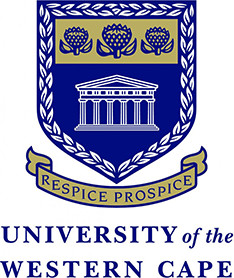Outdated offence used to arrest Zambian activist
Police Chief Solomon Jere told AFP news agency that Kasonkomona had been charged under section 178(g) of the Zambian Penal Code, Chapter 87 of the Laws of Zambia. Section 178(g) refers to "soliciting in a public place for an immoral purpose" which authorities say includes "inciting the public to take part in indecent activities". Kasonkomona was detained as he stepped out of the studios of privately owned Muvi TV in Lusaka. Sources at the television station in Lusaka told AFP that police tried to stop the interview, in which Kasonkomona expressed the view that consensual same-sex acts should not be a crime. Police attempted to take Kasonkomona off air but the management of Muvi TV refused.
The offence in section 178(g) comes from England's Vagrancy Act of 1824, which is the same legislation through which many African countries derive their "rogue and vagabond" offences. Rogue and vagabond offences, it has been argued by PPJA, give licence to the police to arrest someone who is homeless or poor or is assumed to be a thief, who has not caused harm to anyone.
The offence would be open to constitutional challenge in most countries, on the basis of infringement of the right to freedom of expression. Zambia is still in the process of drafting its new constitution. Whether Zambia's new constitution, in its current form, would offer assistance in this situation in future is not certain. Clause 36(1) of the first draft provides that "a person has the right to freedom of expression which includes (a) freedom to hold an opinion (b) freedom to impart information or ideas ... ". Unfortunately, the current formulation of the right to freedom of expression in the first draft of the Zambian constitution also contains a broad exception. Clause 36(2) provides that "Clause 1 does not extend to ... (d) any other unlawful purpose". It may well be argued that if an expression or speech can be construed as an offence, even an outdated offence such as that on which Kasonkomona is charged, this exception in the current draft may kick in. On the other hand, clause 38(2) of the draft constitution provides that "The state shall not penalise any person for any opinion or the content of any broadcast, publication or dissemination."
Kasonkomona went on the television programme to discuss the negative impact of HIV/Aids on most at-risk populations such as sex workers, injecting drug users and men who have sex with men. These are populations who are often neglected in current national HIV/Aids responses.
Meanwhile, Muvi TV reports that Kasonkomona has proceeded to sue the state for unlawful detention and is asking the court for damages for mental distress and injury. In his statement of claim filed in the Lusaka High Court, Kasonkomona claims police have been delaying giving him his medication for tuberculosis and HIV, which puts his life at risk, as such medication is highly dependant on the adherence set time periods between doses.
In Zambia arrested persons must appear before court or be released within 24 hours of arrest. Kasonkomona was denied police bond, even though he was able to provide sureties which would entitle him to release on police bond. He was expected to appear in court on Thursday, four days after being arrested.


